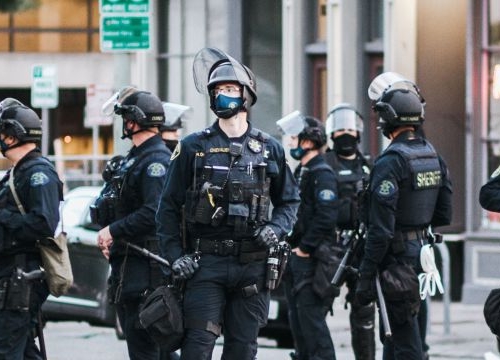Peaceful Protest: Use of Force by States in the Context of the COVID-19 Pandemic
Event


Gabe Pierce/Unsplash
The exercise of the rights to freedom of peaceful assembly and of association, freedom of expression and of participation in the conduct of public affairs, including through peaceful protests, is a legitimate means to express grievances. It is expected that the social, economic and cultural impacts of the COVID-19 pandemic will lead to rising number of such protests globally.
The most visible feature of states’ responses to peaceful protests is the use of force by law enforcement officials and this has remained true since the COVID-19 Pandemic.
This Geneva Human Rights Platform online side-event during the 47th session of the United Nations (UN) Human Rights Council – co-organized with the Permanent Missions of Switzerland and of Costa Rica to the UN in Geneva – will discuss the use of force by states in the context of the COVID-19 pandemic and will analyze the kind of weapons used, identify trends and propose avenues for further consideration and action.
Opening
- Felix Kirchmeier, Executive Director of the Geneva Human Rights Platform
Introductory Remarks
- Jürg Lauber, Ambassador, Permanent Representative of Switzerland to the United Nations Office and other international organizations in Geneva
Moderation
- Catalina Devandas, Ambassador, Permanent Representative of Costa Rica to the United Nations Office and other international organizations in Geneva
Panelists
- Clément Voule, United Nations Special Rapporteur on the Rights to Freedom of Peaceful Assembly and of Association
- Neil Corney, Research Associate at the Omega Research Foundation
- Luciana Pol, Senior Fellow Security Policy and Human Rights at the Centro de Estudios Legales y Sociales (CELS)
Video
Peaceful Protest: Use of Force by States in the Context of the COVID-19 Pandemic
This online side-event during the 47th session of the UN Human Rights Council discussed the use of force by states in the context of the COVID-19 pandemic and analyzed the kind of weapons used, identify trends and propose avenues for further consideration and action.







